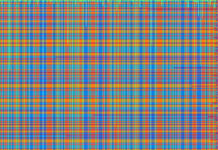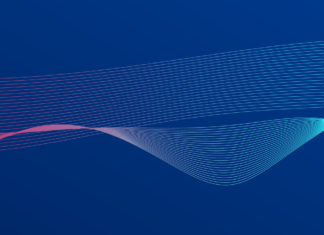Laravel is a powerful and widely used PHP web application framework that has gained immense popularity in the world of web development. Developed by Taylor Otwell and initially released in 2011, Laravel has rapidly become one of the preferred frameworks for building robust and scalable web applications. Its elegant syntax, extensive feature set, and developer-friendly approach make it a top choice for both beginners and experienced developers.
Laravel provides a comprehensive ecosystem for developing modern web applications. Its key features include an expressive and intuitive syntax, a wide range of built-in tools and libraries, seamless database migrations, powerful routing, efficient dependency management, and robust testing support. One of the standout features of Laravel is its built-in support for the Model-View-Controller (MVC) architecture, a design pattern that enhances code organization and maintainability. The framework promotes clean and efficient coding practices, allowing developers to focus on building exceptional applications without getting bogged down by repetitive tasks.
Laravel offers a rich set of functionalities through its bundled packages and tools, such as Eloquent ORM (Object-Relational Mapping), Blade templating engine, Artisan CLI (Command-Line Interface), and the Laravel Homestead development environment. Eloquent ORM simplifies database operations by enabling developers to interact with databases using PHP syntax rather than writing complex SQL queries. Blade templating engine provides an intuitive and efficient way to structure and manage templates, making it easier to build user interfaces. Artisan CLI automates various development tasks, including database migrations, testing, and more, enhancing productivity and efficiency in the development process. Laravel Homestead, a pre-packaged Vagrant box, ensures a consistent and hassle-free development environment across different machines.
Another significant aspect that sets Laravel apart is its emphasis on security. The framework incorporates industry-best practices to mitigate common web vulnerabilities, such as SQL injection, cross-site request forgery (CSRF), and cross-site scripting (XSS). It provides features like CSRF protection, secure authentication, encryption, and password hashing to help developers create secure applications. Laravel also allows integration with external tools for enhancing security, such as third-party authentication systems and API authentication.
Laravel embraces modern PHP principles and standards, making it a forward-thinking framework. It integrates seamlessly with modern front-end frameworks and libraries, enabling developers to create dynamic and interactive user interfaces. Laravel’s support for Vue.js, a popular JavaScript framework, is a prime example of this integration, facilitating the development of powerful single-page applications.
Moreover, Laravel has a vibrant and active community that constantly contributes to the framework’s growth and improvement. The community-driven development model ensures that Laravel stays up-to-date with the latest trends in web development and adopts best practices. Extensive documentation, tutorials, and a vast ecosystem of packages are readily available, making it easier for developers to learn and implement Laravel in their projects.
Laravel stands as a leading PHP web application framework, offering an extensive set of features and tools that streamline the development process. Its emphasis on developer productivity, code maintainability, security, and modern web development principles make it a preferred choice for building a wide array of web applications. Whether you are a novice developer or an experienced professional, Laravel provides a robust foundation to create outstanding and scalable web solutions.
Laravel’s versatility makes it suitable for a range of projects, from small web applications to large enterprise-level systems. It excels in handling complex tasks and integrates well with various databases, including MySQL, PostgreSQL, SQLite, and SQL Server. The Laravel ORM, Eloquent, simplifies database interactions and provides an elegant and expressive syntax for querying and managing data. This abstraction allows developers to work with databases using familiar PHP syntax, enhancing efficiency and reducing the learning curve.
One of Laravel’s remarkable features is its focus on developer-friendly tools and a rich set of pre-built functionalities. Artisan, the powerful command-line interface, automates repetitive and tedious tasks, such as generating boilerplate code, managing database migrations, and running tests. This not only saves time but also ensures consistency across the project. Additionally, Laravel’s robust testing capabilities, facilitated by PHPUnit, help developers create reliable and maintainable code by allowing for comprehensive unit and integration testing.
Laravel’s templating engine, Blade, deserves special mention for its simplicity and efficiency in managing views. Blade templates are both intuitive and expressive, enabling the creation of dynamic and reusable components, layouts, and partials. The elegant syntax and features like conditional statements, loops, and template inheritance contribute to a smooth and enjoyable templating experience.
Furthermore, Laravel’s built-in support for caching, task scheduling, and event broadcasting optimizes application performance and responsiveness. The caching system allows the temporary storage of frequently accessed data, reducing database load and enhancing application speed. Task scheduling simplifies the execution of recurring tasks, such as sending notifications or clearing caches, by providing a convenient and expressive syntax. Event broadcasting enables real-time communication between the server and clients using WebSockets, enhancing interactivity and user experience in modern web applications.
In addition to its exceptional technical features, Laravel’s active community and extensive ecosystem play a vital role in its success. The Laravel ecosystem includes various packages and extensions contributed by the community, covering a wide range of functionalities. These packages, accessible through Composer, enhance the framework’s capabilities and facilitate rapid development by providing ready-made solutions for common requirements.
Laravel’s continuous evolution and commitment to keeping up with industry trends ensure that it remains at the forefront of web development. The release of new versions with enhanced features, improved performance, and better security further solidifies its position as a preferred framework for building cutting-edge web applications. With its intuitive syntax, powerful toolset, and a supportive community, Laravel continues to empower developers to create high-quality, scalable, and secure web solutions, making it an indispensable tool in the modern web development landscape.
In conclusion, Laravel stands as a leading PHP web application framework, offering an extensive set of features and tools that streamline the development process. Its emphasis on developer productivity, code maintainability, security, and modern web development principles make it a preferred choice for building a wide array of web applications. Whether you are a novice developer or an experienced professional, Laravel provides a robust foundation to create outstanding and scalable web solutions. Laravel’s versatility makes it suitable for a range of projects, from small web applications to large enterprise-level systems. It excels in handling complex tasks and integrates well with various databases, including MySQL, PostgreSQL, SQLite, and SQL Server. The Laravel ORM, Eloquent, simplifies database interactions and provides an elegant and expressive syntax for querying and managing data. This abstraction allows developers to work with databases using familiar PHP syntax, enhancing efficiency and reducing the learning curve.


















